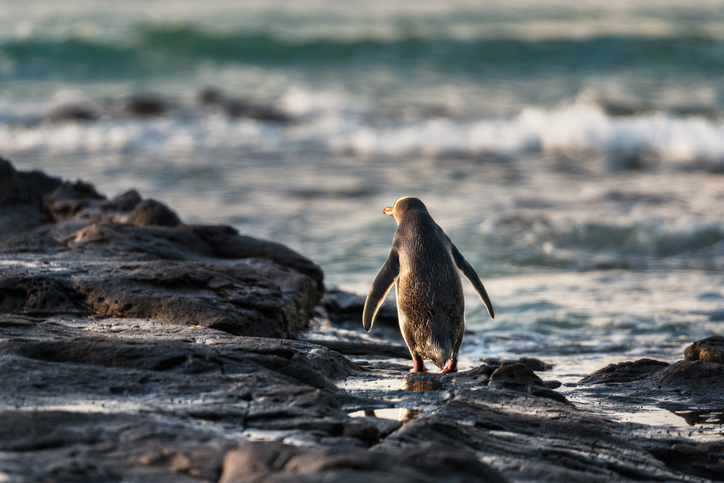

For the past two years Catlins Kakariki Protection and Enhancement Trust and Catlins Yellow-Eyed Penguin Investigation Project spokesman Owen McNutt has been investigating the decline in yellow-eyed penguin populations.
Mr McNutt said after surveying local fishers, the investigation project had determined a marine reserve was unlikely to help protect the native birds. He believed setting up a reserve would hinder growth in their numbers.
"We believe the reserve is a big step backwards."
The main predator of yellow-eyed penguins were barracouta, which were a good source of bait for fishers.
Setting up a reserve would mean catching barracouta would be prohibited and lead to an increase in the numbers of the fish, making it more likely yellow-eyed penguins would be attacked by them.
He also did not believe the yellow-eyed penguins’ main source of food was overfished in the region, he said.
Most fishers were after groper, which the penguins did not eat.
Also, fishers fished for only 24-28 days a year on average, which had little impact on numbers of blue cod, believed to be a major food source for penguins.
He loved birds and wanted to see yellow-eyed penguin numbers increase, Mr McNutt said.
The investigation project was continuing and he was seeking information on recreational fishing habits in the Catlins as well as anything else that might help clarify the cause of the decline in penguin populations.
Comments
To date there is no barracouta related Yellow-eyed penguin fatality on record. And it seems doubtful that there every will be, principally because Yellow-eyed penguins (length: 65 cm) are too big as prey for barracouta (average length: 55 cm); it's krill, sardines and anchovies barracoutas are after (http://bit.ly/2wfgRr0).
So the base premise of Mr McNutt's argumentation is incorrect. Yellow-eyed penguin numbers are not declining because of barracouta predation.
Instead set net bycatch is believed to be one of the biggest threats to the species on the mainland (https://peerj.com/articles/3272/?td=wk) - which could be mitigated by marine reserves.
Not to mention that if 'most fishers were after groper' and 'fish for only 24-48 days a year' their regulating effect on the barracouta population - which Mr McNutt uses as main argument against a marine reserve - should be non-exitent anyhow.
It is puzzling that the author of this article did not even attempt to scrutinize any of the claims made by Mr McNutt but rather reproduces falsehoods. This article is far less journalism than it is simply an outlet for an apparently rather opinionated individual.












